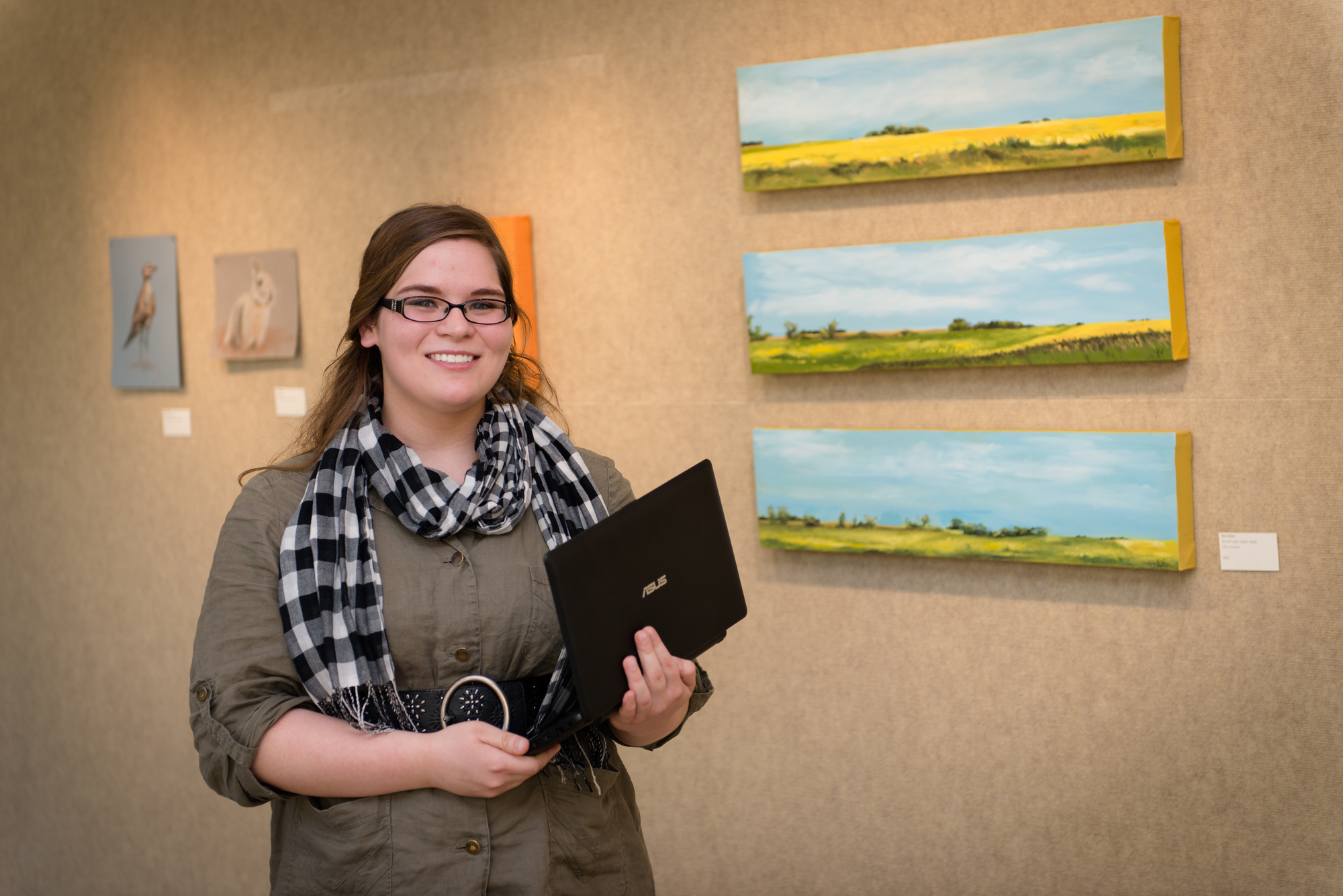Doing Digital Humanities
When was the last time you reached for your encyclopedia? For most of us, it has been a while. Maybe decades. Today’s college students may have never cracked one open. Or even used a card catalog in the library.
Scholarship and research is changing. Information is no longer conveyed only in printed material.
“It’s interactive and communicated in many different ways,” says college archivist Lisa Sjoberg. Research happens on laptops, tablets and mobile phones using websites, e-books, apps and video chat.
With the rise of the digital revolution, technical fields like math, science and health care are gaining popularity and perceived as most applicable to the job market.
"People are questioning the value of the more traditional disciplines of the humanities and liberal arts," says Dr. Joy Lintelman, chair of the history department.
People are questioning the value of the more traditional disciplines of the humanities and liberal arts. – Dr. Joy Lintelman
But the humanities – those academic disciplines that study human culture – are alive and well. In fact, they are more relevant and multifaceted than ever. The humanities, too, have gone digital.
Next year’s incoming class of first-year students has never lived in a time without Google; they were "born digital." So studying the humanities through a digital lens is a natural realization.
Digital humanities is essentially the intersection of technology and the disciplines that study the human condition and culture. At Concordia, the humanities include classical studies, English, history, philosophy, political science, religion, women’s and gender studies, and world languages and cultures.
In 2014, Concordia was awarded an Andrew W. Mellon Foundation grant to encourage incorporation of digital methods and tools in research, teaching and scholarship. Since then, the grant has funded multiple faculty workshops to introduce and provide hands-on instruction of digital tools – including mapping, digital publication and text mining – and curriculum development opportunities.
Last spring, Lintelman taught a new course called “Doing Digital History.” Throughout the semester, her students learned how to use technology to do historical and archival research. Instead of writing a final paper, they communicated their findings through digital timelines and interactive maps. The goal of the course was for students to gain confidence in their skills and get comfortable with the tools needed to produce digital knowledge, Lintelman says.

During the class, Bjorn Altenburg ’16 dug through Concordia’s archives, campus facilities storage, and even his own family history to gather and piece together generations worth of maps and blueprints. In the end, he created an interactive map of the college.
By completing the project, he learned interesting facts about Concordia and his Cobber family. For example, his father, Karl Altenburg '89, played in a band at the first Cornstock. But Altenburg says the most valuable skill he learned was how to build a website.

Aliza Rux ’17, who is majoring in one of Concordia’s newest programs, heritage and museum studies, also was in the class. For her group assignment, she used a program called Tiki-Toki to create a digital timeline of Concordia’s history. Some of that information will be presented as part of the college’s 125th anniversary celebration in fall 2016.
Learning how to use the tools was important, she says. But, like previous generations before her, Rux found that studying history had its own lessons to teach.
“The main purpose of the class was to teach us how to problem solve and find the tools that work the best for each situation. "Technology is constantly evolving – in 10 years we’ll probably be using completely new programs. It’s about learning how to adapt,” Rux says.
Technology is constantly evolving ... It’s about learning how to adapt. – Aliza Rux
As assignments across disciplines are created and consumed digitally, students are no longer writing a paper to be shared only with their professor. Their work can easily be seen and critiqued by a broader audience. Knowing that their work may be seen and used by others means students are more engaged in their research, Lintelman says.
“They’re creating products for their peers to see, for the world to see, and more and more for others to respond to, even,” says Lintelman. “I had a student ask me, ‘Do you mean someone could footnote me and my work?’”
Her answer: “Yes.”